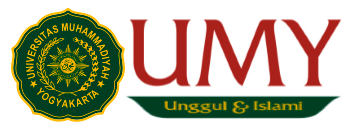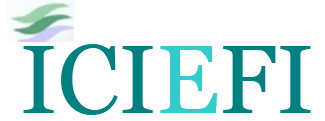- Focus and Scope
- Section Policies
- Peer Review Process
- Open Access Policy
- Archiving
- Publication Frequency
- Author Fees
- Token of Appreciation
- Source of Fund
- Plagiarism Policy
Focus and Scope
International Journal of Islamic Economics and Finance (IJIEF) is a peer-reviewed scientific journal devoted to research in the fields of Islamic economics and finance. Islamic economics and finance are critical global issues due to their importance and benefits to the knowledge and industrial development. As a result, this issue requires further exploration through research. We hope that IJIEF can bring together all academicians, researchers and practitioners to contribute their ideas as a means of advancing Islamic economics and finance in the world. IJIEF research publications cover a wide range of subjects.
- Islamic Economics
- Islamic Banking
- Islamic Finance
- Islamic Macroeconomics
- Islamic Microeconomics
- Islamic Monetary Economics
- Islamic Social Finance
- Islamic Microfinance
- Islamic Fintech
- Islamic Economic Thoughts
- Islamic Political Economics
- Integrated Islamic Commercial and Social Finance
- Islamic Macro and Micro Prudential
- Islamic Public Finance
- Islamic Ethics
Section Policies
Articles
Peer Review Process
International Journal of Islamic Economics and Finance (IJIEF) is committed to producing and publishing the highest-quality articles from researchers, academicians, and practitioners in the fields of Islamic economics and finance. Therefore, Determination of the article that would be published in IJIEF is carried out through double-blind peer review by considering main the relevance and contribution of articles on the development of Islamic economics and finance. The review process, which protects and improves the article's quality, is critical and must be free of bias and conflict of interest. As a result, it is critical that this process is supervised by an established editor teams and peer reviewers who are experts in the fields of research being reviewed. Detail review process is explained as the following:
- Submission of manuscript by author(s). The submission is only processed via online i.e. OJS of IJIEF.
- After the Editor-in-Chief accepts the manuscript, it will be checked to ensure that it fits the International Journal of Islamic Economics and Finance's mission and scope (IJIEF). The Editor-in-Chief appoints a Section Editor to conduct additional evaluations to ensure that the article complies with the International Journal of Islamic Economics and Finance's style guide and template (IJIEF). If a discrepancy is discovered during this process, the Editor In-Chief or the Section Editor has the authority to reject the manuscript.
- The appropriate manuscript will be continued to solicit input from the reviewer.
- According to the reviewing article, a reviewer is someone who possesses expertise. The reviewing period is 10-14 days, but this can be extended if the reviewer requests additional time for review. After completing the review, the reviewer can send it to the editor for additional scrutiny.
- A reviewer may make one of the following recommendations: Accepted without revisions, Accepted with minor revisions, Accepted with moderate revisions, Accepted with major revisions, Rejected, or See comments. Technically, a Reviewer may make the following recommendations via the International Journal of Islamic Economics and Finance's (IJIEF) website system:
- Accept submission: a reviewer selects this option if the manuscript under review is acceptable as it is.
- Revisions required: a reviewer selects this option if the manuscript is accepted after the author makes necessary corrections.
- Resubmit for review: a reviewer may choose this option if the manuscript is in need of significant revisions. Thus, it is necessary to conduct a second review after the author has made the necessary changes.
- Resubmit elsewhere: a reviewer may choose this option if the manuscript under review does not fit the journal's scope, vision, or mission.
- Rejected: a reviewers may choose to decline submission if the manuscript they are reviewing is rejected.
- See comments: a reviewer selects this option for the manuscript under review if the reviewer is unable to make a decision on the manuscript under review and submits it to the editor or editorial board in another country to view and read the reviewer's comments in order to ask advice.
- If the reviewer does not possess the same expertise as the manuscript being reviewed, the reviewer may reject the manuscript and refer it to another reviewer who possesses the same capacity and capability and possesses the necessary expertise.
- The section editor or editor-in-chief will review and complete the comments and feedback before compiling them into a rejoiner review form and sending them to the author. The section editor or editor-in-chief may make a provisional decision during this step whether accept an entry, revision is necessary, submit for review again or reject submission. The Section Editor acknowledges a reviewer for their time spent on the review of a manuscript.
- The author then revises the accepted manuscript for two weeks or more, depending on the type of revision.
- The editor and reviewer directed the author to return a complete revision to the editor for suitability review.
- The editor in chief or section editor will review the manuscript and make the final decision on whether to accept or decline it. However, this does not preclude the author from requiring a second or additional revision.
- Accepted manuscripts that do not require additional revisions will undergo copyediting and layout to ensure their appearance is consistent with that of the International Journal of Islamic Economics and Finance. If it detects a problem with the writer's language, it will assist in the proofreading process.
- The manuscript has already been accepted for publication in the International Journal of Islamic Economics and Finance (IJIEF) and will be published in January or July with a DOI. Additionally, the paper may be published in a special issue if the same topic is identified in a call for papers.
Open Access Policy
This journal provides immediate open access to its content on the principle that making research freely available to the public supports a greater global exchange of knowledge.
This journal is open access journal which means that all content is freely available without charge to users or / institution. Users are allowed to read, download, copy, distribute, print, search, or link to full text articles in this journal without asking prior permission from the publisher or author. This is in accordance with Budapest Open Access Initiative.
Archiving
This journal utilizes the LOCKSS system to create a distributed archiving system among participating libraries and permits those libraries to create permanent archives of the journal for purposes of preservation and restoration. More...
Publication Frequency
International Journal of Islamic Economics and Finance (IJIEF) is bianually published the journal articles in January and July. IJIEF only publish electronic (PDF) version. However, the printed copy is available upon request.
Author Fees
International Journal of Islamic Economics and Finance (IJIEF) is opened for all of researchers, academicians, and practitioners to submit their research. There is processing Fees for the publication of articles received IDR 1.000.000/USD 65
Token of Appreciation
A token of appreciation will be given for best-selected papers that have successfully published in the current issue or special issue of International Journal of Islamic Economics and Finance (IJIEF).
Source of Fund
The funding of IJIEF is fully supported by Universitas Muhammadiyah Yogyakarta as the publisher.
Plagiarism Policy
To preserve from the scientific misconduct (plagiarism), all of manuscripts which are submitted in IJIEF will be scanned by turnitin.













1.jpg)